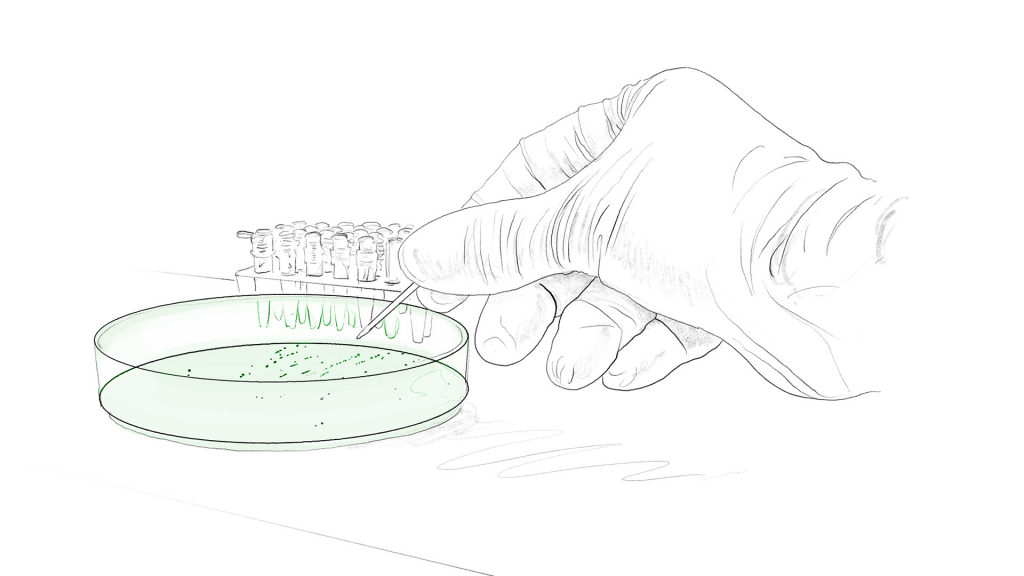Applications of monoclonal antibodies (mAbs) have become even broader in the past few years, as availability of highest-quality immunoglobulins and IgG-derivatives increased while cost-efficiency in manufacturing processes has progressed as well.
While traditional monoclonal antibody therapy relies on single epitope glycoproteins, novel approaches use extremely potent cytotoxic agents conjugated to highly specific antibodies (antibody drug conjugate) as targeted therapies against tumor cells. The production of such drugs required the move away from fusing B lymphocytes (B cells) with myeloma cells to generate hybridoma cell lines on to develop a holistic process to combine biotechnology and chemistry to link both components together.
This article will give our reader a great overview of applications of monoclonal antibodies.
Monoclonal antibodies are widely used in medical diagnostic tests. Due to their high affinity and high selectivity, they are applied as reagents and receptors in assays to detect their respective target antigen in the most demanding matrix: tissue and bodily fluids. Good examples of diagnostic application of monoclonal antibodies that everyone of us knows are the test for the detection of COVID-19 or the pregnancy test.
Subscribe to our Newsletter
Get all the latest updates, and learn about our advancements in antibody production.
Subscribe now
Examples of monoclonal antibodies in diagnostic applications:
Antibody therapy generally relies on highest-quality monoclonal antibodies produced by biotechnology methods. Polyclonal antibodies are less expensive, but they are not specific to single epitopes and would lead to side effects. Moreover, they are produced in non-human animals and would lead to severe immunogenicity.
After the development of monoclonal antibody production by hybridoma technology by Köhler and Milstein in the 1970s, enhanced murine, chimeric, humanized and human antibodies were accessible for broader use. Subsequently, the first therapeutic monoclonal antibodies gained FDA approval after large clinical trials.
Monoclonal antibodies are particularly used for therapies in autoimmune diseases or cancer. Their use is explained in more detail in the following paragraphs.

A class of diseases stems from a malfunction of the immune system, which then attacks the body’s own cells and its tissues. Several lines of treatments are routinely used to regulate immune responses, such as nonsteroidal antiinflammatory drugs, immunosuppressants and monoclonal antibodies.
Such mAbs’ pharmacology may be optimized at the Fab region to bind and inactivate certain pro-inflammatory peptides like cytokines or even specifically target the dysregulated immune cells.
Anti inflammatory mAbs that act as inhibitors of the physiologic TNF-response are routinely used in conditions such as Crohn’s disease, ulcerative colitis and rheumatoid arthritis. Monoclonal antibodies may be used as preventive treatments after organ transplants to avoid the development of the graft-versus-host-disease (GVHD), in which T lymphocytes (T cells) of the donated tissue recognize the host’s cells as foreign and begin immune responses.1
Monoclonal antibodies (mAbs) have revolutionized cancer therapy and are widely used in the treatment of various types of cancer. Here are some applications of mAbs in cancer therapy:
Targeted Therapy: Monoclonal antibodies are a type of targeted drug therapy that specifically recognize and bind to proteins on cancer cells. By targeting these specific proteins, mAbs can interfere with the growth and survival of cancer cells.
Immunotherapy: Some mAbs work by triggering the immune system to attack and kill cancer cells. They can attach themselves to cancer cells, making it easier for the immune system to identify and destroy them. This process is known as antibody-dependent cell-mediated cytotoxicity (ADCC). 2
Delivering Therapeutic Agents: Monoclonal antibodies can be conjugated with therapeutic agents such as chemotherapy drugs or radioactive particles. These conjugated mAbs act as homing devices, delivering the therapeutic agents directly to the cancer cells, thereby enhancing their effectiveness.
Blocking Cancer Cell Signals: Certain cancer cells have receptors that signal them to divide and multiply. Monoclonal antibodies can block these signals, preventing cancer cells from proliferating.3
Inhibiting Immune Checkpoints: Immune checkpoints are molecules that regulate the immune response. Some monoclonal antibodies can inhibit these checkpoints, allowing the immune system to recognize and eliminate cancer cells more effectively.3
The field of mAb research and development in cancer therapy is constantly evolving, with new mAbs being developed and tested for different types of cancer.
Monoclonal antibodies are successfully used in therapies for various diseases, such as AIDS, asthma or COVID-19. Here’s a summary of their use in each of these areas:
AIDS: mAbs have been explored as a potential treatment for HIV/AIDS. They can target specific viral proteins and inhibit viral replication. However, the development of effective mAbs for HIV has been challenging due to the high mutation rate of the virus.
COVID-19: Monoclonal antibodies have emerged as a promising therapeutic approach for COVID-19. Several mAbs have been authorized for emergency use or received full approval for the treatment of COVID-19. They can neutralize the SARS-CoV-2 virus, reduce viral load, and potentially prevent severe disease progression.
Asthma: mAbs have shown promise in the treatment of asthma. They can target specific molecules involved in the inflammatory response, such as immunoglobulin E (IgE) or interleukins, to reduce airway inflammation and improve asthma control.4
Viral Infections: Monoclonal antibodies have been investigated for their potential in combating various viral infections. They can directly neutralize viruses, enhance immune responses, and provide prophylactic benefits. mAbs have been studied for viruses such as Ebola, respiratory syncytial virus (RSV), cytomegalovirus (CMV), and others.5
Here is a shortlist of mAbs with therapeutic uses:
Read more: Therapeutic monoclonal antibodies – powerful biological drugs
Recombinant antibodies are considered as an advancement of mAbs, because they offer unprecedented jumps in quality, sequence flexibility and enable unforeseen innovations. They can be engineered to be bispecific towards two antigens, have fine-tuned glycosylation patterns to modulate the immune system and many more.
As an example for further possibilities, consider antibody Drug Conjugates (ADCs). They are very promising targeted cancer therapies in vitro and in vivo. They carry a highly cytotoxic payload to malignant tissues, directed by the specificity of the mAb component.
Monoclonal antibodies have various applications, including diagnostic testing, disease treatment and therapeutics or research.
Yes, monoclonal antibodies have been used for the treatment of COVID-19. They are laboratory-produced antibodies that target specific proteins of the SARS-CoV-2 virus, helping to reduce viral load and mitigate the severity of the disease in certain patients.
The first application of monoclonal antibodies occurred in 1986 when the U.S. Food and Drug Administration (FDA) approved the monoclonal antibody Muromonab-CD3 (OKT3) for the prevention of rejection in organ transplantation.